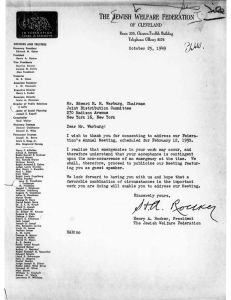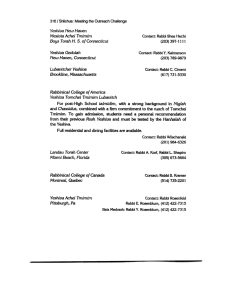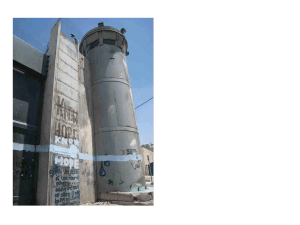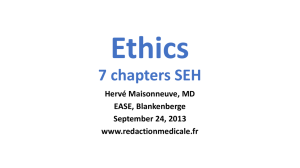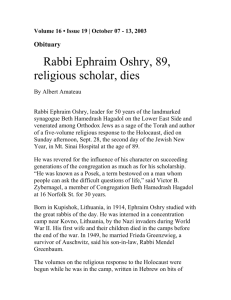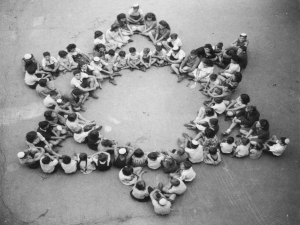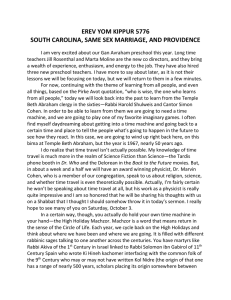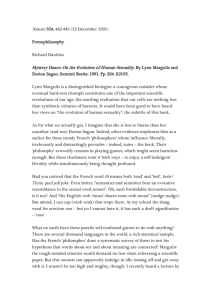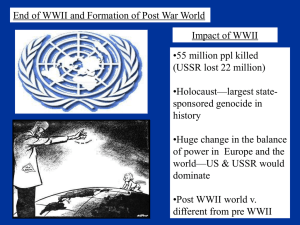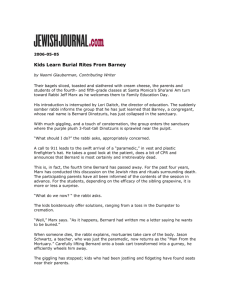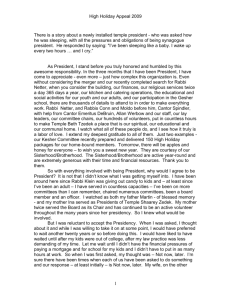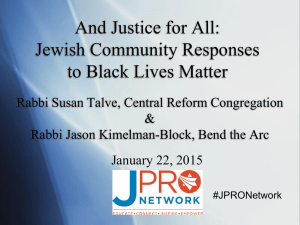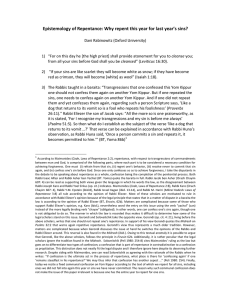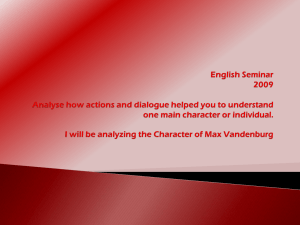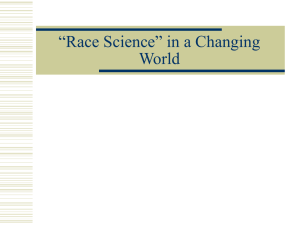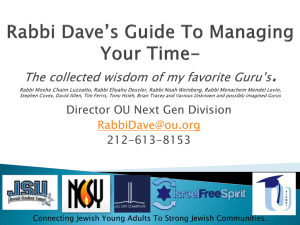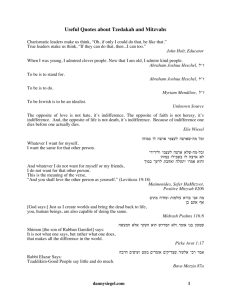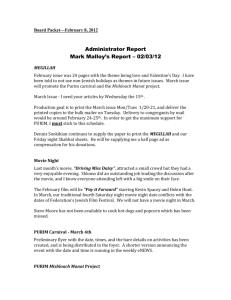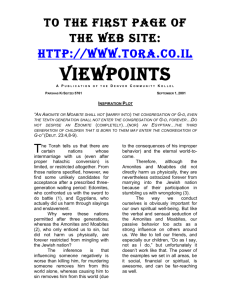L`Shanah Tovah 5770 - Brit Tzedek v`Shalom
advertisement
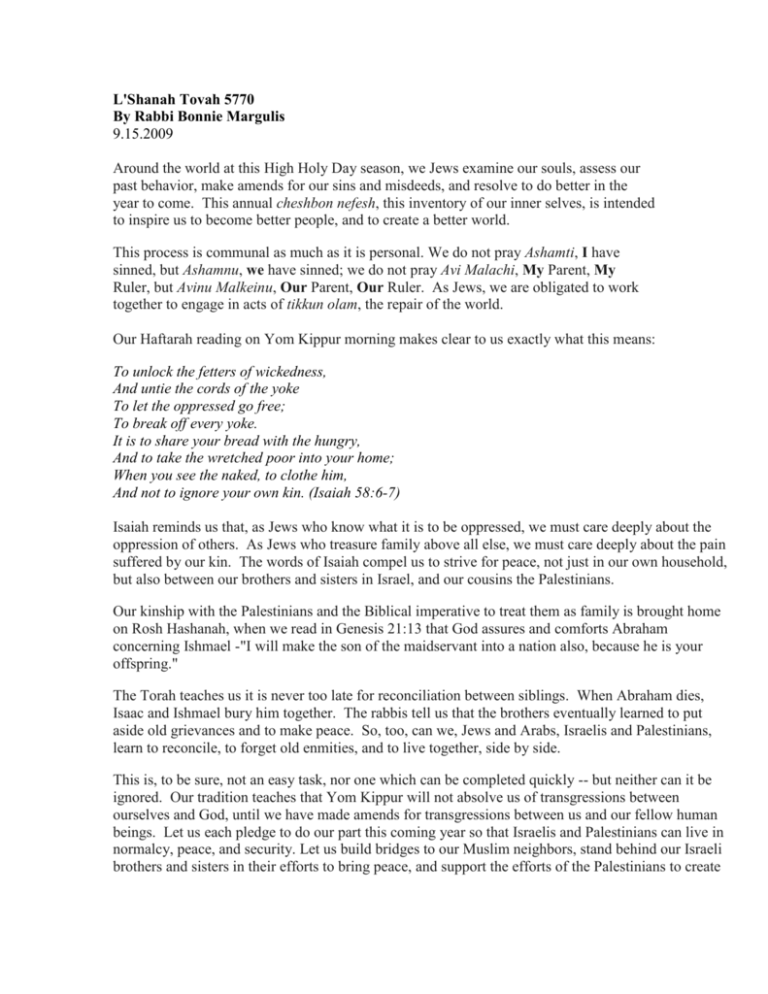
L'Shanah Tovah 5770 By Rabbi Bonnie Margulis 9.15.2009 Around the world at this High Holy Day season, we Jews examine our souls, assess our past behavior, make amends for our sins and misdeeds, and resolve to do better in the year to come. This annual cheshbon nefesh, this inventory of our inner selves, is intended to inspire us to become better people, and to create a better world. This process is communal as much as it is personal. We do not pray Ashamti, I have sinned, but Ashamnu, we have sinned; we do not pray Avi Malachi, My Parent, My Ruler, but Avinu Malkeinu, Our Parent, Our Ruler. As Jews, we are obligated to work together to engage in acts of tikkun olam, the repair of the world. Our Haftarah reading on Yom Kippur morning makes clear to us exactly what this means: To unlock the fetters of wickedness, And untie the cords of the yoke To let the oppressed go free; To break off every yoke. It is to share your bread with the hungry, And to take the wretched poor into your home; When you see the naked, to clothe him, And not to ignore your own kin. (Isaiah 58:6-7) Isaiah reminds us that, as Jews who know what it is to be oppressed, we must care deeply about the oppression of others. As Jews who treasure family above all else, we must care deeply about the pain suffered by our kin. The words of Isaiah compel us to strive for peace, not just in our own household, but also between our brothers and sisters in Israel, and our cousins the Palestinians. Our kinship with the Palestinians and the Biblical imperative to treat them as family is brought home on Rosh Hashanah, when we read in Genesis 21:13 that God assures and comforts Abraham concerning Ishmael -"I will make the son of the maidservant into a nation also, because he is your offspring." The Torah teaches us it is never too late for reconciliation between siblings. When Abraham dies, Isaac and Ishmael bury him together. The rabbis tell us that the brothers eventually learned to put aside old grievances and to make peace. So, too, can we, Jews and Arabs, Israelis and Palestinians, learn to reconcile, to forget old enmities, and to live together, side by side. This is, to be sure, not an easy task, nor one which can be completed quickly -- but neither can it be ignored. Our tradition teaches that Yom Kippur will not absolve us of transgressions between ourselves and God, until we have made amends for transgressions between us and our fellow human beings. Let us each pledge to do our part this coming year so that Israelis and Palestinians can live in normalcy, peace, and security. Let us build bridges to our Muslim neighbors, stand behind our Israeli brothers and sisters in their efforts to bring peace, and support the efforts of the Palestinians to create their own sovereign state. Ken y'hi ratzon. May it be so. Rabbi Bonnie Margulis was ordained at Hebrew Union College (HUC) in 1992. Currently working as a Jewish educator in Madison, WI, she was the Director of Clergy Programming for the Religious Coalition for Reproductive Choice for twelve years. In the 1990s, she served as rabbi of the Blacksburg Jewish Community and the Virginia Polytechnic Institute Hillel. Rabbi Margulis is proud to be a member of the Reform Movement's Commission on Social Action, where she sits on the Women and Minorities Task Force. She is also a member of the Central Conference of American Rabbis Justice and Peace Committee, co-chairs the Women's Rabbinic Network Social Justice Committee, and is a leader in the Wisconsin chapter of Brit Tzedek v'Shalom and active in the Brit Tzedek Rabbinic Cabinet. Rabbi Margulis is married to Rabbi Jonathan Biatch, and they have two children, Samantha Chaya Biatch and Joshua Ariel Biatch.
